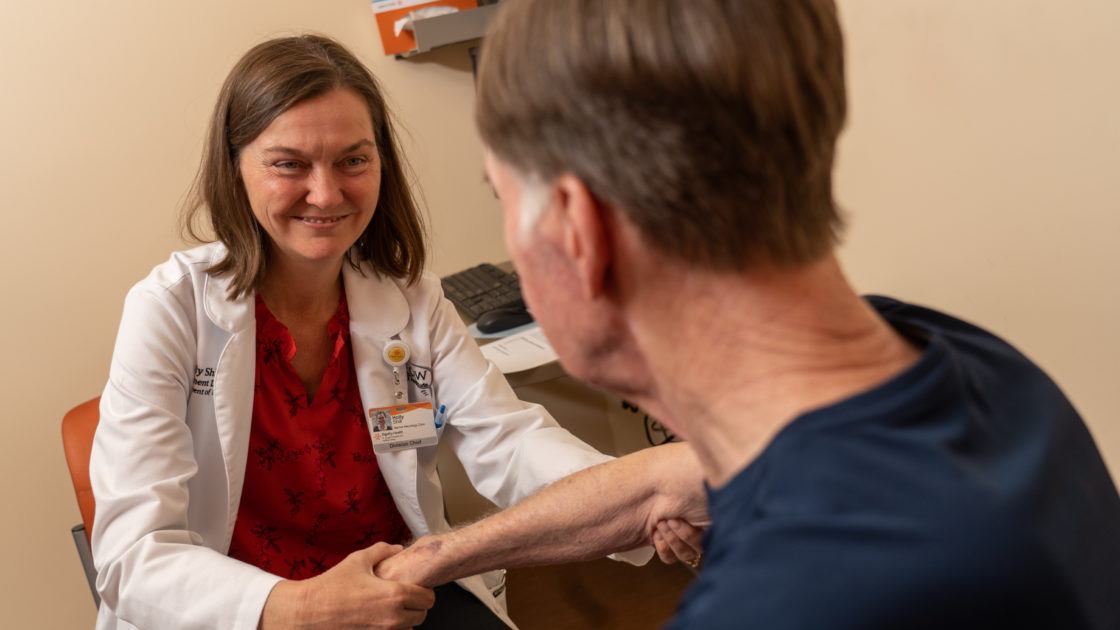
Muhammad Ali Parkinson Center: A Hub for Cutting-Edge Research
More than two decades since its establishment in 1997 and five years following famed boxer Muhammad Ali’s passing, the Muhammad Ali Parkinson Center remains committed to upholding the mission of fighting for a cure for this condition through groundbreaking research and top-notch patient care.
The renowned movement disorder center has held steadfast to the wishes of Lonnie and Muhammad Ali that all patients and caregivers have access to the same level of outstanding services that Ali received throughout his battle with the neurodegenerative disease.
“This dream of Lonnie and Muhammad’s is what drives many of our goals at the Center,” said Holly Shill, MD, movement disorder neurologist and director of the Muhammad Ali Parkinson Center at Barrow Neurological Institute at Dignity Health St. Joseph’s Hospital and Medical Center in Phoenix. “We are thrilled to be able to offer our patients access to the types of research studies that could really be game changers in the way we understand and treat the disease.”
Some research, like the PD GENEration: Mapping the Future of Parkinson’s Disease study, focuses on learning more about genetic forms of the disease. For this study, in collaboration with the Parkinson’s Foundation, researchers at the Muhammad Ali Parkinson Center are collecting genetic data and providing remote and in-person genetic counseling for Parkinson’s disease patients in English and Spanish. PD GENEration aims to help people with Parkinson’s disease and their physicians identify whether they may qualify for enrollment in certain clinical trials based on their test results. Scientists, including those at the Muhammad Ali Parkinson Center, will use the genetic testing results obtained through this study for future research in hopes of developing improved treatments for Parkinson’s.
“We are also proud to be involved in the second phase of a landmark clinical study by the Michael J. Fox Foundation called the Parkinson’s Progression Markers Initiative (PPMI). The main goal of this initiative is to better understand Parkinson’s onset and progression in order to expedite the development of new treatments, which are incredibly important for neurologists to have in our tool kits,” said Dr. Shill.
Among the 37 programs in 8 countries currently participating in PPMI, the Muhammad Ali Parkinson Center is hopeful that results from this study will help accelerate earlier diagnosis and groundbreaking treatments to benefit patients today, and make disease prevention a reality for future generations. Candidates eligible to participate include: people recently diagnosed with Parkinson’s in the last two years, including those with genetic mutations linked to the disease; people who do not have Parkinson’s but are living with certain risk factors (e.g., family history, genetic mutations, sleep disorder); and people without Parkinson’s and without known risk factors to act as control volunteers.
Other exciting research initiatives involve light therapy to treat sleep problems; virtual reality type goggles to investigate eye movement patterns for people with Parkinson’s, other neurological conditions, and a control group; and using palliative care to look at predictors of outcomes and different ways to intervene to improve outcomes. Scientists at the Center are also studying the effects of Deep Brain Stimulation (DBS) on gait and falls and conducting brain imaging and infusion related studies.
“I am very proud to of our team here at the Muhammad Ali Parkinson Center,” said Dr. Shill. “The devotion of our researchers, clinical experts, therapists, outreach team, and other support staff will continue to make a great difference in the fight against Parkinson’s disease.”
